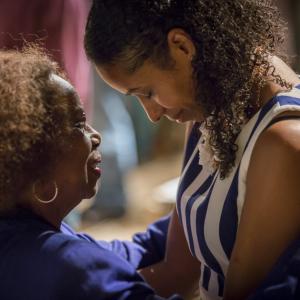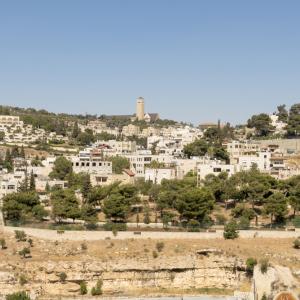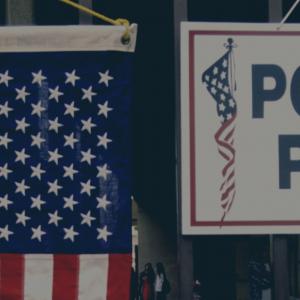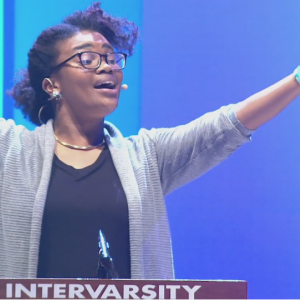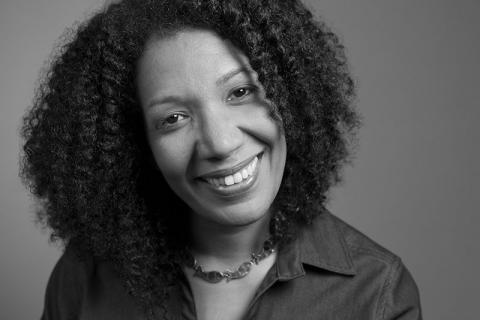
Lisa Sharon Harper, a former Sojourners columnist, is the founder and president of Freedom Road and author of Fortune and The Very Good Gospel. You can follow her work at lisasharonharper.com.
Posts By This Author
Through Stories, We Can Keep Moving Onward

Image via Ryan Rodrick Beiler / Shutterstock.com
Seven years ago, on a cold day in December 2009, I entered Elizabeth Detention Center in Elizabeth, N.J. — a minimum-security prison on a pilgrimage organized by the Interfaith Center of New York and Human Rights First. This one-day journey ushered me into the story of immigrants in the New York and New Jersey area, and changed my life.
Why I Still Have Hope
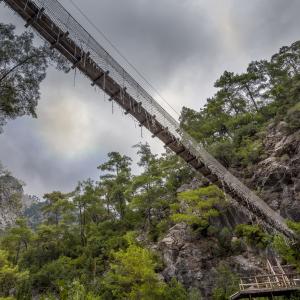
Image via Denis Churin / Shutterstock.com
It had been a while since the hashtag of a black man, woman, or child killed by a cop had burned across social media like wildfire. Rather, it seemed the nation had transitioned into a new phase of the struggle — the trial phase.
5 Inspiring Moments From #summitforchange
Jim turned to me and said: “We’re greedy — seeking a second blessing.”
I smiled wryly: “This is my third.”
Roots of Freedom
THE NATION'S FIRST blockbuster television miniseries, Roots, shocked the nation when it started airing on Jan. 23, 1977. Based on Alex Haley’s research on his own family’s story and adapted for television from Haley’s novel, Roots offered the world its first cinematic depiction of Africa and Africans unfiltered through the conduit of Hollywood’s racialized imagination. White Tarzan and Jane were nowhere to be found in Juffure, Gambia. Kunta Kinte was the leading man. Fanta was his ingénue—black ... and beautiful.
For eight nights the Kinte family unfolded from generation to generation, focused on individual family members’ struggles against generations of evil white slave masters.
But the 2016 “reimagined” version of Roots places the snatched descendants of Omoro and Binta Kinte squarely within the unyielding machine of the international slave trade—an economic system that, fundamentally, sought the well-being of European nations at the expense of the rest of the world.
In 380 B.C.E., Plato articulated a grand idea in his treatise The Republic. There is this thing called “race,” he posited. Race is determined by the kind of metal a person is made of, he said: silver, gold, iron, or copper. A person’s race determines how that person serves society.
The transatlantic slave trade took Plato’s notion and expanded the “republic” to encompass the world. Guided by Western philosophers’ notions of human hierarchy, Western popes and monarchs declared the right of Europeans to enslave “uncivilized” peoples for the benefit of the crown. It didn’t take long for Plato’s copper and gold to morph into Virginia judicial law that delineated between slaves and servants based on skin color. Colonial “races” became white, black, and red.
What Will It Take to Repair What Race Broke?
What if these were not our foundations? What if these foundations did not lay the groundwork for philosophical and legal frameworks that created separate and unequal schooling for the next 150 years? What if they did not lay the foundations for racialized de-facto exclusions from the Homestead Act and the G.I. Bill. And what if they did not lay the foundations for environmental and climate injustice that causes heightened hardship in communities with less healthcare and fewer resources. And what if they did not lay the foundations for 1.5 million black men to go missing from black communities, families, churches, and civic structures — prized booty of America’s racialized Drug War and a new source of near free labor for American corporations within state and federal prisons.
When the Good News of the Gospel Doesn't Feel Good Enough
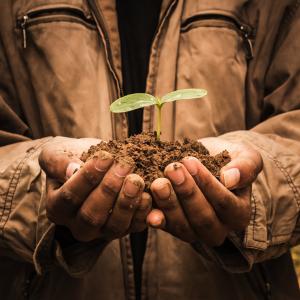
Image via releon8211/Shutterstock.com
If I were to share my understanding of the gospel to my ancestors who walked the Cherokee Trail of Tears (according to family oral tradition) and slaved in South Carolina and Virginia (according to Census Slave Schedules), would they receive my simple understanding of Jesus’ “good news” as good news? Would they jump for joy to find out “God has a wonderful plan for their lives, but they are sinful and therefore separated from God, but Jesus died for their sin, so if they pray a simple prayer they get to go to heaven?”
If this news would not lead my oppressed ancestors to shout with joy, then maybe it’s not good news at all — or at least it’s not good enough.
The Samaritan Woman And Me
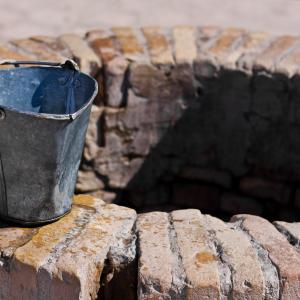
Siarhei Tolak / Shutterstock
JESUS REMINDS the Samaritan woman at the well that she was created for living water—she, the rejected one, was created for water that brings God’s healing, God’s acceptance, God’s wholeness. She was created for God’s peace between ethnic groups. She was created for God’s peace between genders. She was not created for the wilderness. She was created for places where living water springs from the earth and waters everything and everyone in its path. This hardened woman was created to be loved, and to love.
Humanity’s broken relationship with God is the ultimate cause of all other brokenness. It all stands as evidence of the initial break. In another sense, there is no way humanity could violate relationship with any other created being and not violate its relationship with God. All of creation is bound together by one thing: relationship with our Creator. It is Creator God’s love that binds us all together: To break one tie is to break them all.
And it all unraveled, from verse to verse and chapter to chapter. But that was not the end of the story; it was only the beginning. The first humans were tempted to grasp for their own way to peace in the garden, but their futile reach left them emptier than when they began. They reached for peace and received what Jesus called “well water.”
Like the ultimate Harriet Tubman committed to calling humanity to come home—to find the love it was created for—Jesus sits at the well and says to the nameless enemy, “Give me a drink.” And he doesn’t only speak to her heart. He also speaks to her mind. She has real concerns about the rightful place of worship, concerns hewn out of centuries of ethnic strife. Jesus engages her questions.
Meet the Palestinians Who Went Off the Grid to Keep Their Homes
THE ROAD WAS bumpy—full of deep holes and harrowing possibilities for slippage down a roadside slope. My heart raced as I considered the possible headline back home: Bus tumbles down Israeli slope—50 Americans killed by Palestinians. Yes, that would likely be the headline, but it wouldn’t tell the story.
As our bus rolled through this stretch southwest of Bethlehem, my heart raced as Amal Nassar explained that the area had been declared property of the Israeli state decades ago. Since then, Israel built smooth roads, but we weren’t allowed on them. To the right of our bouncing bus was an adjacent highway reserved for Israelis—Palestinians are restricted from driving on these Israeli highways, relegated to the old dirt roads.
Our bus wound around sharp corners, up a hill until it came to a stop. There didn’t seem to be any building structures in sight so I wondered why we’d stopped. Nassar explained that the Israeli government had set large boulders in the middle of the road to block traffic from reaching her family’s farm, so we would have to hike the rest of the way.
We stepped off the bus and onto a dirt road strewn with rocks and trash—old tires, plastic bags, plastic bottles. When the Israeli government claimed the land, it ceased basic services such as trash pick-up, electricity, and running water to Palestinians in the area. It was an effort to make life so difficult that the Palestinians would choose to leave—in modern human rights terms, the world calls this ethnic cleansing. Nassar explained that many families have chosen to leave. Once they are gone for three years, the Israeli government claims that their property has been abandoned and that the state then has legal grounds to claim the power of eminent domain over the land.
Flint and The Big Lie

Flint water plant. ehrlif / Shutterstock.com
The failure to provide clean water to Flint, Mich., residents has sacrificed their safety and hindered their access to one of the most basic human needs — water. It also drastically diminished the capacity of citizens to exercise leadership and stewardship because lead poisoning stunts victims’ brain development. Plus, the town of Flint, itself, is the “least of these” in the state of Michigan. It is the state’s poorest city.
In 'The Story of God,' Finding the Story of Us
I caught up with executive producers McCreary, James Younger, and Moran Freeman on the red carpet premiere of The Story of God in New York City.
“People don’t see the commonalities between religions,” Younger explained. “They just think of their faith as being the one that has the answers. Other faiths? They don’t know two things about them.”
BLOCKED: Arizona's Not the Only State Turning People Away at the Polls
This week, as the five candidates still in the running for the White House turned their campaigns westward; vying for top spots in Arizona, Idaho, and Utah, pundits wondered aloud if voter suppression would make an impact on the general election. At the same time, miles-long lines formed in Arizona’s Maricopa County, the most populous and racially diverse county in the state. According to reports, lines of voters were still winding around blocks and parking lots even as news stations were projecting winners. Why? Because Maricopa County had reduced its polling places by 70 percent between 2012 and 2016, from 200 polling places to 60. How could they do that?
The Seeker’s Journey
Seekers are open, curious, earnest explorers. They are on the hunt for truth, meaning, and purpose. They are in touch with the questions of their lives. They are in touch with their need. There is a profound humility in the seeking process. To be a seeker, one must admit she is not God. He must acknowledge that there is something to understand and experience beyond his current reality. In The Story of God, we become seekers on Freeman’s journey. Our eyes are opened to our own questions about God, death, life, love, and purpose.
Preaching While Female

4Max / Shutterstock
A MILLION YEARS ago, when I was 23 years old, I sat in a lecture hall, flanked by college students who tutored at the youth program where I worked. They had invited me to their campus ministry’s worship service. An Asian-American woman named Susan Cho—young (about my age), tall, straight-backed, clear-voiced, and refreshingly funny—stepped to the podium and began preaching.
I sat transfixed. She dove into the scripture and it came alive! She explained what was going on in the world of the biblical characters in a way that made it feel as if they were living today. I felt like I knew them—I understood them. And then she brought home the meaning of the text for our lives in Los Angeles, months after the 1992 riots. This woman gave one of the most dynamic and biblically accurate sermons I had ever heard.
But then a familiar thought came into my head: “This is heresy,” it whispered.
You see, in college I was part of an evangelical ministry in which women could lead behind the scenes and share their testimony during worship services, but we could not preach or, for that matter, teach the scripture—especially to men. Ideas of male dominance were never taught outright, but they were observed like tenets of the faith.
There Is No Future Without Repentance
It occurred to me: South Africa is no longer under legal apartheid, but apartheid still thrives here — through de facto economic segregation. There are no signs that say “whites only” as they did under apartheid, but there has also been no move by the black government to restore the people to the land that was taken from them.
One question haunted me: How does a white Christian South African live in this apartheid from day to day? 1) One must actively fight injustice, or 2) she must embrace a theology that has nothing to do with it.
Wheaton College and the Future of Evangelicalism
Hawkins' act of solidarity with scapegoated people of Islamic faith — wearing a hijab on campus — and her Facebook statement that Christians and Muslims worship the same God struck a nerve within Wheaton College’s white, politically conservative administration. Ultimately, the public act of solidarity challenged the assumption of white, male, Christian supremacy — the assumption that whites, men, and Christians are more human than anyone else.
Four Things Evangelicals Should Know About Black Lives Matter
But evangelical leaders are stepping forward. They are voicing support for the structural and systemic protection of the image of God in black people. And as in the days of MLK and Mandela, it is essential that allies understand the movement and its operating principles.
The Black Lives Matter movement is the most recent phase of the 500-year global struggle for black freedom. It is not random. It is not disorganized.
Open Letter to the Leadership of #Urbana15 and InterVarsity Christian Fellowship
I, along with my colleagues Leroy Barber, Dominique D. Gilliard, Mae Cannon, Micky Jones, Dr. Soong-Chan Rah, and Dr. Brian Bantum, were struck that InterVarsity had made a bold and unique move among modern evangelical non-advocacy-based parachurch organizations. I served on staff with InterVarsity for 10 years from 1995-2005. For five of those years, I served as director of racial reconciliation in Greater Los Angeles. In my last year, I served as racial reconciliation specialist for Southern California. In all those years, most of the organization’s focus was on the reconciliation of cultures within their own communities. In some instances, InterVarsity even dared to address the structural and systemic injustices within its own organization. Occasionally, a campus chapter would respond to a racist incident that occurred on campus. But never before had InterVarsity issued a public statement in support of structural and systemic racial justice in the broader society.
Things Fall Apart
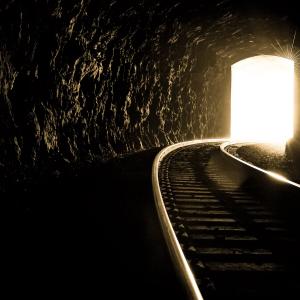
jadimages / Shutterstock
If Facebook feeds are any measure of anxiety levels, then we’re reaching a new high. Friends’ posts share news of overt hatred and violence, the likes of which we haven’t seen in decades:
- A seemingly unending onslaught of police killings of unarmed black people.
- White supremacists shooting people as they pray, setting fire to churches, and shooting into crowds of multiethnic protesters.
- More than 1,000 mass shootings in the U.S. since the 2012 massacre of children at Sandy Hook.
- Millions of Syrian and African refugees flowing into Europe—the greatest movement of people across Europe since the Holocaust.
- The so-called Islamic State ushering in what looks to be a new world war.
- Oh, and the climate is changing at an alarming rate.
It feels like the world is unraveling.
But what if it is? What if we are, in fact, witnessing the end of the world as we know it? Would that be so bad?
Think about it. The world order, as we know it, rests on deep foundations built by worldwide colonization, imperialism, slavery, patriarchy, exploitation, and ecological consumption. Most of the violence listed above traces back to economic and social systems of dominance—one group over another or humanity’s domination of the rest of creation. White supremacists feel threatened because people of color are finally rising up and saying “No more!”
While 16 mass shootings occurred between 1995 and 2005, there were 38 from 2005 to 2015, according to a recent report by Mother Jones. In recent years, people have pushed against the gun lobby with all their might, but the NRA seemed invincible.
Finding Light in the Darkest of Days
Not since the World War II have United States politicians exercised such an extreme level of xenophobia, nationalism, and unapologetic bent toward fascism. Trump is calling Americans to break faith with our own constitution, which guarantees the protection of all faith traditions within our borders. This is not only un-American: It is ungodly. All humanity, regardless of religious affiliation, is made in the image of God. As such every human being is worthy of respect, dignity, and equal protection of the law. To scapegoat Muslim people is to scapegoat the image of God on earth.
There is a real threat, but it does not come from Islam. It comes from a relatively small band of misguided extremists who are leveraging our fear in order to destroy us — from within.
Thanksgiving, Lament, and the Story We Tell

Image via Matthew Jacques/Shutterstock.com
Thanksgiving. That word holds profound meaning for Americans, most of it nostalgic. I remember in grade school when our classes would present Thanksgiving pageants that retold the story of Thanksgiving. We all know it by rote:
The pilgrims were persecuted in England (probably because the men wore buckles on their hats, culottes, and white stockings — who does that?). Anyway, in 1620, they got in a boat and sailed to America, where they met brown people in paper cutout, feathered headdresses and hand-me-down 1970s fringe vests and wrangler jeans. The pilgrims said “Hi!” and the headdress people (called “Indians,” for no good reason) said “How!” When the pilgrims realized they didn’t know how to cook the food in this “new world,” the Indians showed them how to cook cornbread, cranberry sauce, and collard greens (or at least that’s how the story went in my school). Turkeys were plentiful in the new world, so when the hat buckle people and the headdress people held a feast in November of 1621 to celebrate their new friendship, a turkey sat at the center of the table.
This is the way modern adults struggle to teach children the foundations of our nation’s history. What will it take for us to face our history head on — to face the sinful foundations upon which we stand?
